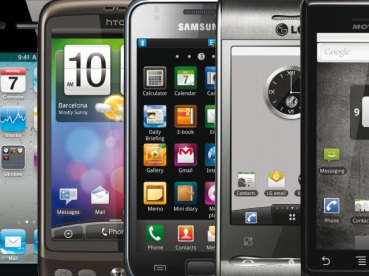Mood apps: Taking smartphones beyond games, photos, music…

In a market dominated by games, photography, music and other forms of entertainment, mood apps offer a real breakthrough for a better understanding of moods and improved patient/doctor communication.
“Mood apps” are a thoughtful breakaway from the traditionally best-selling apps available for iphones and androids.
Ever since smartphones flooded the marketplace, there’s been a deluge of apps to fill all possible needs and appetites for games, photography, music and more.
But mood apps are among the first and most important to offer us a glimpse of what apps can do to improve our physical and mental health and welfare.
So many modern-day ailments, as well as behavior that is abusive to ourselves and/or others, are linked to stress, moods and emotions: insomnia, obesity, depression, high blood pressure, fatigue, anxiety, alcoholism, drug addiction, mania, to name a few.
In general terms, mood apps allow you – or your patients – to use a combination daytimer/calendar/notebook built into a smartphone to track life’s stressors and record them to see how they relate to episodes of, for example, binge eating, drinking or drug abuse, depression, lack of sleep, mania, and so on.
You can record your feelings throughout the day (e.g. contentment, mania, anxiety, depression), as well as keep notes on activities such as diet and exercise, taking daily medication, relaxation.
Some apps allow for you to report with whom you spent time on a given day as well as where you went. The latter can be a general location (e.g. from New Jersey into NYC) or more specific (to the university, to the gym, visited your mother).
The best mood apps allow this data to be turned into graphs, which can be emailed directly from the smartphone to the health professional doing the follow-up.
Over time, this data can reveal a multitude of new information.
For example, it might show that a regular bi-weekly hospital visit to an aging relative causes a great deal of stress, leading to insomnia and recurring depression.
Or it might show that taking night classes and going to the gym, combined with using the daytimer to remember to take prescribed medication, has helped increase self-confidence, self-esteem and improve one’s mood.
Or an increase in drug or alcohol use may be found to be linked to visits to specific neighborhoods.
Of course, these are only examples to highlight the possibilities offered by the new smartphone mood apps.
Since we all have stress and ups and downs in our moods, using a mood app as a daily journal can help us all to have an ongoing insight into our physical and mental health.
-
Archives
-
Categories
-
RSS
Entries RSS
Comments RSS